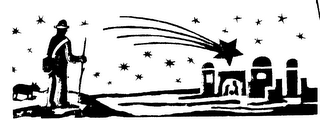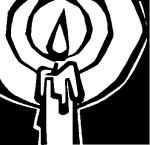
We gather together this Sunday on the morning of New Year's Eve.
Many of us take a moment or more at the turn of the year to reflect on the year past and to project hopes on the year to come.
As Christians, we enter into these reflections in the aftermath of the joyous celebration of the birth of Jesus.
My question is this: What is our response to that gift of grace embodied in the birth of the infant Jesus and realized in his resurrection? What gifts can we share as our response to God's gift of grace to us?
Our scriptures this week offer some suggestions.
The writer of Ecclesiastes tells us in Ecclesiastes 3:1-13
that there is a time and place for everything and our response is to find joy in all things -- all things. Given the litany of things there is a time and place for, though, this is a bit of a challenge for me.
In the Gospel of Matthew, Jesus
provides a description of discipleship: feed the hungry, provide drink to the thirsty, welcome the stranger, clothe the naked, care for the sick, visit the imprisoned.
Often with New Year's resolutions, we set goals for ourselves that are hopeful but not necessarily realistic. However, we each have gifts that we can draw from as our response to the gift of grace we experienced in the arrival of Jesus. Realistically, what gifts can you resolve to share in the coming year as a response to God's gift of grace?







